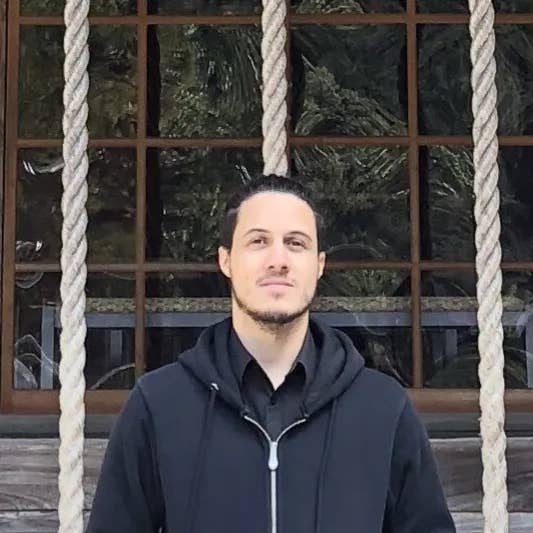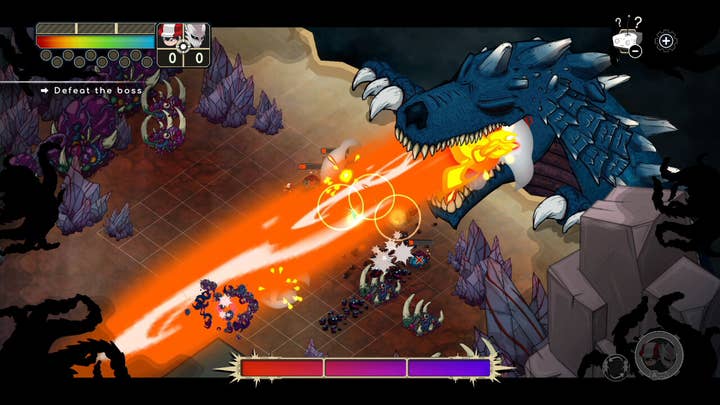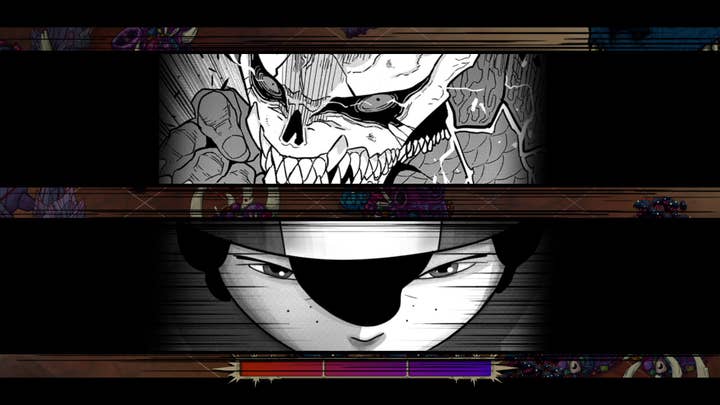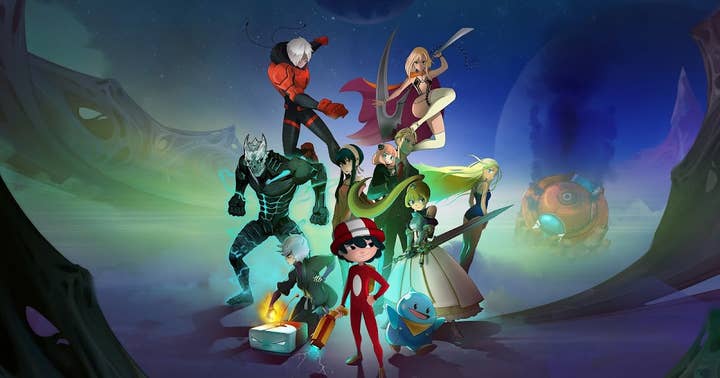Indie spirit in Japan and Switzerland: Rinaldo Wirz on captaining Momo-pi
We talk to the co-founder about cross-cultural experiences, indie development in Japan as a foreign developer, and working on Shueisha IP
Sign up for the GI Daily here to get the biggest news straight to your inbox
Captain Velvet Meteor was the second game released by the cross-continental indie gaming studio Momo-pi.
Founded in 2018 but working together on a small prototype project in the years leading towards the group’s official foundation, this loose collective of developers has crossed cultures from Europe to Japan and worked on award-winning titles for both mobile and consoles, both alone and with major Japanese publishers.
After all, how many developers get the chance to be entrusted with Shueisha’s world-famous Shonen Jump IP? Imagine taking the reins of major franchises from the Japanese manga institution's Jump+ web service like Spy x Family, never mind being chosen to represent the company's first foray into video games?

The story of the development of Captain Velvet Meteor, from an idea in the mind of studio co-founder and creative director Rinaldo Wirz about a cross-cultural boy navigating life in a new country, to a crossover title of Jump IP on the back of a slew of awards, is the story of indie development in Japan as a foreign developer, and a story of lessons learned.
While very much a collaborative effort, Wirz’s story as an international developer in Japan goes back further as an internal developer at the likes of Square Enix before he branched into indie creation, and invokes experiences of culture shock and adjustment to live in another country.
Yet, far from gaming, Wirz’s career in Japan actually started in the world of animation.
"I come from Switzerland, and while it’s starting to have some sense of [games and animation] industry built up, at the time there was no future for me – so I left to do my dream of working as an animator," he reminisces of his early career.
"[With] a producer of animation in Japan, we were drinking sake, and he told me half-drunk not to do animation, as you won’t have a life! But you have animation in games, you could do that. So after six months, I got a job as a 3D animator at a games company. From that point, it’s nice, as you see a lot of the process between the concept people, the illustration, textures, and you see how it’s implemented in the game. I didn’t know programming, and I still don’t know, but I have friends who do, and we started to make a prototype for our first idea, Spirit."

Working as an international games developer in Japan isn’t the easiest task. Doing this as an indie developer is even more difficult. To not 'look Japanese' in Japan, no matter whether you’re a recent immigrant with a few months or years of life experiences in the country or someone who moved with their parents at an early age, or was even born in the country, is to be othered in minor or more noticeable ways, either through repeated questions of 'when are you returning home' or outright exclusion from certain circles.
While the indie circle in Japan is welcoming and willing to support one another irrespective, you also face the reality that the space is less-developed than the dynamics found within the Western market. By comparison, the market is not only smaller, the emergence of publishers like Shueisha Games, Playism or Bandai Namco seeking out indie or doujin publishing deals (independent projects produced mostly by hobbyists and typically sold at indie markets like Comiket) is a far more recent occurrence.
Never mind the global reality that increasing competition in the space leaves no guarantee for success and only a hope that your game’s quality and marketing can bridge the gap for consumer awareness towards profitability.
Yet it is in this slowly-blossoming Japanese scene that Captain Velvet Meteor found a home, thanks to a showcase of the company’s first game, Persephone, at a Google Play Indie Games Festival in Tokyo in 2019. First released for iOS and Android in 2018, it was at the event that the title won a top ten placement in the overall category, as well as the Shonen Jump Award.
"I was 23 when I first came to Japan, and I had this real culture shock"
"We received a special prize from Jump+ which was a little bit of money and the possibility of using some of their licenses to make a game," Wirz explains. "But at the time this was promised to be for a really small project. I felt I could do something more inspired, and I had this character called Captain Velvet Meteor who was a superhero in his mind, meaning you can cross that over with whatever you want."
It was at this time, separate to the projects being undertaken under the Jump umbrella, that Shueisha were making its first steps into games publishing and the indie sphere with the Shueisha Game Creators Camp, a community site for indies to share, collaborate and learn about creating games.
As Shueisha took more interest in the sphere and interested parties saw the ideas being concocted with Velvet Meteor, there was greater interest in expanding the scope of the project from its small-scale mobile-only potential to something larger.
"Shuhei Hoshino [editor-in-chief of Jump+] saw the application and thought it was interesting, and after talking for a few months we signed the contract and started on the game, and we started for mobile," he continues. "But it seemed like the more we created the game the more it was like, 'oh fuck, this is big!'
"At this time Shueisha started to hire a producer, and we spoke about this problem and they said that this game is made for Nintendo Switch, so we started to move there. In the middle of all this, they created Shueisha Games because they saw that some games [from the Camp] had enough potential and they needed a big publisher to support it. So for me it was this natural growth, it was really people linking together to try and make this bigger."

The character of Captain Velvet Meteor is at the center of this, and from the initial idea that stuck with Wirz until finally being able to bring them to life as part of this project, comes a familiar and layered story to those who have moved countries and found themselves adjusting to the cultural and social barriers that come with such a move.
"We have this tactical action with Jump characters, sure, but in terms of story you have this boy overcoming a big emotional challenge," he explains. "For this kid, he just left ten years of his life, all his friends and everything. And it’s a very personal story, I see my own child and how they would react if we ever left Japan. I was already an adult, I was 23 when I first came to Japan, and I had this real culture shock."
While amusing stories of confusion over bidets, or more sobering stories of communicating across a divide, have influenced Velvet Meteor, living in Japan isn’t something he would reverse, Wirz says.
It offers him convenience, and remote work avoids the high office space costs of life at home. Being able to choose hours away from the strict work environments typical to larger companies in Japan is more of a lesson from life in the country, rather than adopting approaches learned from these companies and taking them into the world of indie development. Plus, having made a family and home in Japan, working for yourself with what Japan offers from a life perspective is far more beneficial.
"[With Captain Velvet Meteor], one of the influences is my anxiety over the responsibility of my family being a family that is between two countries"
"If I work with Japanese people I need someone that’s independent enough to not need to be told what to do. And generally, work in Japan is one where few people really want to take the lead on their own," is the way that Wirz puts it when explaining what Japan offered his work.
"I think the most valuable thing about being in Japan for me is the convenience. I can do my eight to ten hours a day and still have quality time with my family, and in terms of money, being able to rent something, go out, life is really convenient."
Yet even without the lessons of the work environment seeping into their work, it doesn’t mean that the experiences of life in Japan don’t influence his work.
"[With Captain Velvet Meteor], one of the influences is my anxiety over the responsibility of my family being a family that is between two countries. The fact that we may need to choose to do the opposite, move from Japan to Switzerland, for the sake of the kids. In this story, the father maybe needed to make a choice for his kid that the kid is perhaps a victim of, even if it will make his experience richer in the future, because for this kid it’s like going to a different school where you don’t have friends anymore, except instead of it being ten kilometers away it’s 10,000 kilometers.
"Then there’s a reminiscing on the things that make childhood poetic or the moments of integrating that you remember, like the old Japanese grandmother who may talk a lot and thinks you understand Japanese because you said two words to them and starts talking more and you have to admit that, sorry, you don’t understand.
"I like the imagination part, where you want to make everything in your life an epic story. The game itself is fun, the battles are fun, but I wanted to make it romantic, not in terms of love but like a novel, a story."
With Captain Velvet Meteor, beyond the chance to tell this story of a character that had stuck with Wirz for many years, it was an opportunity for this small team to refine their skills, beyond the lessons they learned building their previous project, puzzle-like adventure Persephone. Maybe even a chance to finally build Spirit, the prototype that first brought the team together.
"The game itself is fun, the battles are fun, but I wanted to make it romantic, not in terms of love but like a novel, a story"
"We’re searching for a publisher for Spirit," Wirz confirms when asked about their future plans. "We made a new prototype that’s not exactly a vertical slice but a pre-production level prototype and went searching for publishers. We had a talk with Ubisoft, but there’s a lot of problems over there at the moment that left them wanting to wait some years, which is sad but it gave us confidence.
"We also have other ideas, some pitch deck ideas, but for now my work is to find a way for us to continue making games! I can’t say for sure what will come next year, but we’re doing a Steam version of Captain Velvet Meteor, we’re hoping to find the right publisher, and some are interested so it’s about finding the right deal. But even then, signing a deal takes time."
Ultimately, every project for Momo-pi has felt like an experiment to them, a chance to improve their skills and collaborative work in the hope of learning the lessons and skills needed to build their ultimate game: a chance to finally bring that first prototype that brought this team together to life.
"The first prototype we made in 2016 was about exploration, beauty, ambience, and we earned some prizes from it, including from Bitsummit here in Japan. Every project we’ve done we try to find ways to get experience for Spirit. With Velvet Meteor it was about narration and battles. Spirit is the dream game, and when we make that, we’ll have new ideas and dreams for the next one."
Creating an indie studio that transcends both Europe and Japan has helped Momo-pi to build relationships with publishers in all areas of the globe and build games influenced by the work and lives of many different experiences, ultimately enhancing the final result.
Captain Velvet Meteor is a game as much about having fun with recognizable manga characters as it is about dealing with cultural divides and the uncertainty of being a kid, and comes from the unique cross-cultural experiences Wirz and the rest of Momo-pi. Whatever comes next for the studio, whether it be Spirit or something else entirely, it can be assumed that the lessons learned here will help the team continue to move into an exciting indie future.
Sign up for the GI Daily here to get the biggest news straight to your inbox
